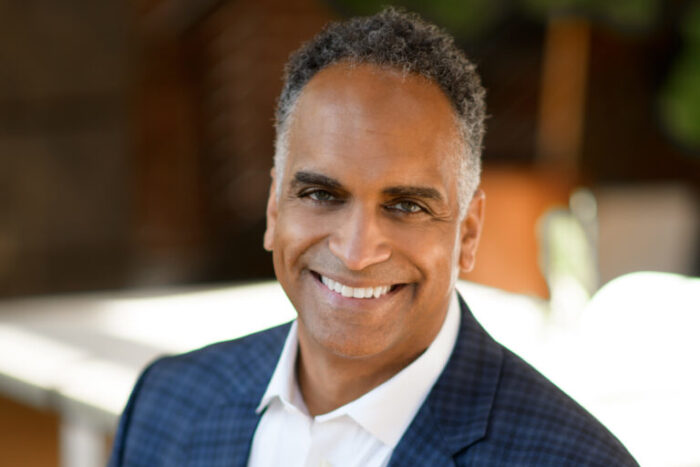In an effort to promote research and scholarship conducted by Marquette faculty and staff, the Office of Marketing and Communication and the Office of Research and Sponsored Programs have partnered to present a monthly recap of recent grants awarded to faculty and staff.
The report will be featured in Marquette Today each month.
The following grants were awarded to university faculty and staff in September 2020.
- Marquette professor awarded $5 million Department of Energy grant for advanced electric drivetrain (Dr. Ayman El-Refaie)
Immersive and Augmented Media Design Fellowship
$63,000 – Epic Games, Inc.
James Brust , director of Wakerly Media Lab for Innovation and Creativity in the Diederich College of Communication.
, director of Wakerly Media Lab for Innovation and Creativity in the Diederich College of Communication.
Abstract: The Immersive and Augmented Media Design Fellowship establishes a two-semester adjunct or full-time faculty appointment coordinated through the Wakerly Media Lab to develop curriculum in the Digital Media and Performing Arts program at Marquette with the intent of expanding student’s knowledge and proficiency with real-time 3D production.
KEEN Fellowship
$10,000 – Kern Family Foundation, Inc.
Dr. Chandana Tamma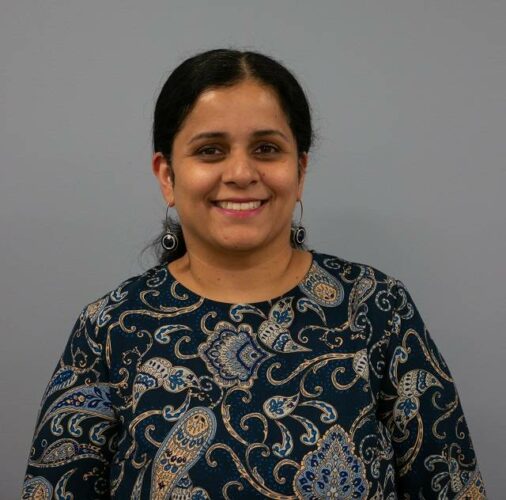 , adjunct assistant professor of electrical and computer engineering in the Opus College of Engineering.
, adjunct assistant professor of electrical and computer engineering in the Opus College of Engineering.
Abstract: The KEEN Fellowship will be utilized to devise innovative approaches for increasing classroom engagement, design class modules such that the students don’t lose sight of the big picture, and to disseminate the content and outcomes of this project at an educational conference and/or in an educational journal.
Deep learning-based metal artifact reduction and organ segmentation using spectral CT
$43,989 – Daegu Gyeongbuk Institute of Science & Technology
Dr. Dong Hye Ye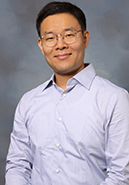 , assistant professor of electrical and computer engineering in the Opus College of Engineering.
, assistant professor of electrical and computer engineering in the Opus College of Engineering.
Abstract: The research team will develop a novel deep learning approach to remove the metal artifacts and analyze 3D spectral CT scan data. Instead of existing metal artifact reduction (MAR) methods based on sinogram interpolation, it will develop a generative adversarial network to in-paint spectral CT sinogram data for MAR, and a U-Net deep learning approach for automatic organ segmentation to identify organ structures. This development will substantially improve CT image quality and, consequently, the accuracy of CT organ segmentation, thereby improving clinical management.
Counting in a pandemic: How state and local officials shape census-taking during COVID-19
$2,445 – American Political Science Association
Dr. Philip Rocco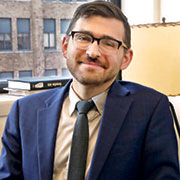 , assistant professor of political science in the Klingler College of Arts and Science.
, assistant professor of political science in the Klingler College of Arts and Science.
Abstract: This project will examine how state and local officials are responding to operational disruptions caused by the COVID-19 pandemic. Through a combination of quantitative analysis of self-response rates and interviews with a network of officials, the researcher will analyze the extent to which subnational investments in the census help to address implementation dilemmas created by COVID-19. The results of this study will thus contribute to our understanding of the benefits and drawbacks of an increasingly “intergovernmentalized” census.
Experiences of African American mothers who express breast milk
$800 – Wisconsin Association of Lactation Consultants
Lisa Anders (PI), graduate fellow; and Dr. Karen Robinson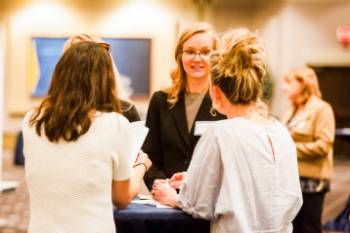 (mentor), associate professor and directory of the Nurse-Midwifery Program; in the College of Nursing.
(mentor), associate professor and directory of the Nurse-Midwifery Program; in the College of Nursing.
Abstract: While feeding breastmilk leads to better health outcomes for mothers and infants, only a quarter of mothers in the U.S. provide breastmilk exclusively to their infants for the first six months of life. Experiential factors that increase exclusivity and duration of breastmilk feeding have been explored in women who feed breastmilk directly at the breast. However, less is known 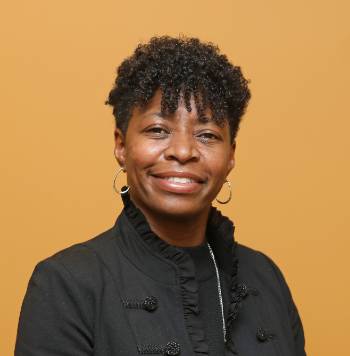 about the experiences of a growing number of women who feed exclusively expressed breastmilk (Exclusively Expressed Breastmilk Feeding [EE-BMF]). It is imperative that providers understand this experience to provide support to these women in their decisions. The purposes of this study are to explore the experiences of women who practice EE-BMF, examine their feeding goals and intentions, and determine whether evidence of the concept of salutary breastfeeding is present in the experiences of women who EE-BMF.
about the experiences of a growing number of women who feed exclusively expressed breastmilk (Exclusively Expressed Breastmilk Feeding [EE-BMF]). It is imperative that providers understand this experience to provide support to these women in their decisions. The purposes of this study are to explore the experiences of women who practice EE-BMF, examine their feeding goals and intentions, and determine whether evidence of the concept of salutary breastfeeding is present in the experiences of women who EE-BMF.
Thermal imaging camera for dynamic events of heterogeneous materials
$154,900 – Air Force Office of Scientific Research
Dr. John Borg , chair and professor of mechanical engineering in the Opus College of Engineering.
, chair and professor of mechanical engineering in the Opus College of Engineering.
Abstract: This grant will fund the acquisition of a high-speed thermal imaging camera in support of ongoing Department of Defense efforts at Marquette. The aim is to better understand the dynamic behavior of mesoscale ordered binder and crystalline sucrose systems in order to design functionality into energetic systems. The camera will support this effort by informing our understanding the thermal response of these heterogeneous systems.
National Latinx Psychological Association COVID-19 Research Collaborative
$23,714 – National Latinx Psychological Association
Dr. Lucas Torres , associate professor of psychology in the Klingler College of Arts and Science.
, associate professor of psychology in the Klingler College of Arts and Science.
Abstract: Principal investigator will organize all aspects of a data collection efforts to investigate COVID-19 health, education, and economic disparities, barriers, and protective factors in among the Latinx population living in the United States.
Can anyone hear me? Assessing the transactional distance for engineering students during COVID-19
$10,524 – Wisconsin Space Grant Consortium
Dr. Allison Murray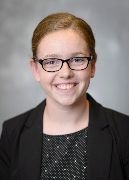 , assistant professor of mechanical engineering in the Opus College of Engineering.
, assistant professor of mechanical engineering in the Opus College of Engineering.
Abstract: The purpose of this project is twofold: explore the existence and impact of perceived student isolation in the new socially distanced and online educational environment, and to implement student-designed solutions to reduce perceived student isolation. To that end, the researcher proposes to use the framework of transactional distance – a representation of the physical and emotional distance students feel from their peers, instructors, and course content – as a metric to measure student isolation and engagement. Transactional distance is.
